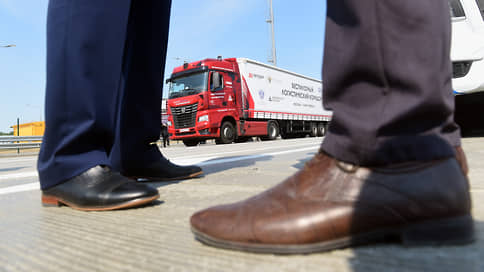participants discussed the export potential of small and medium-sized businesses
[ad_1]

Discussions during the SME Forum, which traditionally takes place on the first day of SPIEF, demonstrated that the government is interested in the sector not only as a driving force for import substitution in the face of the loss of familiar international suppliers, but also as a source of active exports. Yesterday, international trade was considered not so much in the economic plane, but as a “soft power” of foreign policy. However, small business itself, despite numerous measures to support exports, is not yet ready for such a role. Both traditional fears and a lack of understanding of foreign markets, and the consequences of sanctions – difficulties with settlements and logistics interfere with it. The government is ready to revise the program to support SME exporters, but it is hardly worth counting on broad financial support measures without serious reciprocal efforts.
The plenary session of the Forum for Small and Medium Enterprises (SMEs), which usually precedes the St. Petersburg International Economic Forum (SPIEF), this year was held in a non-standard format: its participants abandoned the traditional discussion of systemic support for the sector in order to search for sources of its export potential. This decision is largely due to the already exhausted discussions around the SME development strategy (see Kommersant of May 27 and 30) – the appeal to exports reveals a new government interest in small businesses. The work of companies in foreign markets, let us explain, testifies to their comparative competitiveness in relation to other SMEs.
So far, however, small businesses are not coping with the tasks assigned to them to replace foreign suppliers – the products are not up to par in quality, representatives of large companies complained at the forum. SMEs, on the other hand, as Denis Dybov, head of the Department of Entrepreneurship Development of the Chamber of Commerce and Industry, emphasized, complain about a large number of customer requirements, including expensive internal certification of small suppliers and forced lending to large businesses (delayed payment terms for already completed contracts).
Active discussions on the first day of the forum also unfolded around the program of “growing” suppliers from SMEs for large companies. From 2022, state JSCs can provide financial, legal, methodological and other support to increase the number of qualified suppliers from among SMEs and thus provide themselves with the necessary products (for more details, see Kommersant dated January 19, 2022).
However, the concern of business communities is the possibility that state-owned companies will select “their” SMEs for support: questions remain about how to avoid affiliation and achieve “neutrality” in the auction. As Petr Ivanov, deputy head of the FAS, who participated in one of the discussions, noted, the same problem is also relevant when implementing another support mechanism – offset contracts (we recall that they guarantee demand from the state JSC for SME products in exchange for investments by the latter). The problem, according to the FAS, is that 223-FZ, which regulates offsets, gives state corporations “quite a lot of freedom,” including in terms of the terms of such contracts, de facto contributing to the monopolization of markets.
The export potential of SMEs, despite numerous support measures and a well-built infrastructure (now the Russian Export Center (REC) and regional export support centers accompany entrepreneurs to enter foreign markets), has also not been realized. As First Deputy Prime Minister Andrei Belousov emphasized, out of 6 million SMEs, exporters make up only 1% (about 60,000 companies) – the figure, according to him, has not changed over the past two years, although potentially foreign trade activities can already be involved at least now 600 thousand enterprises. The main barriers are the entrepreneurs’ fear of the unknown, as well as the difficulties with settlements, logistics and finding partners abroad, which have become aggravated due to sanctions.
To change the situation, the authorities are reconfiguring a comprehensive program to support SMEs, including exporting SMEs. Expansion of access to special loan products, in particular factoring, as well as the active use of “umbrella” guarantees were named among the systemic mechanisms (for more details, see Kommersant of June 9). State-owned companies will also specifically address the problems of SMEs: the Russian Export Center and Russian Railways are discussing the possibility of consolidating the cargo of various SMEs — SMEs are often unable to fill the required volume on their own, which affects the regularity and cost of deliveries. To solve the problems, it is planned to create an “export express SME” (similar to Agroexpress): small businesses will be able to order export transportation through a single window (the already existing digital platform “My Export”), and RZD Logistics will organize the delivery of even small consignments goods. Business, in turn, asked for additional assistance in finding foreign partners and increasing the amount of transport and logistics subsidies.
Judging by yesterday’s discussions, the exporter support system will not be replenished with additional financial incentives. In particular, the head of the REC, Veronika Nikishina, pointed to two sources of increasing the effectiveness of benefits already being implemented – this is the digitalization of support and the “linking” of numerous measures at the federal and regional levels with each other. De facto, most entrepreneurs still do not know about the available tools – and to enter new markets, they rather need advice, which can be quite an effective tool of assistance, taking into account country specifics and an array of requirements in foreign trade. Business, as expected, prefers financial support measures – however, the discussions that have unfolded on the forum site show that, apart from a constant dialogue with business, its financial incentives still do not work.
[ad_2]
Source link






